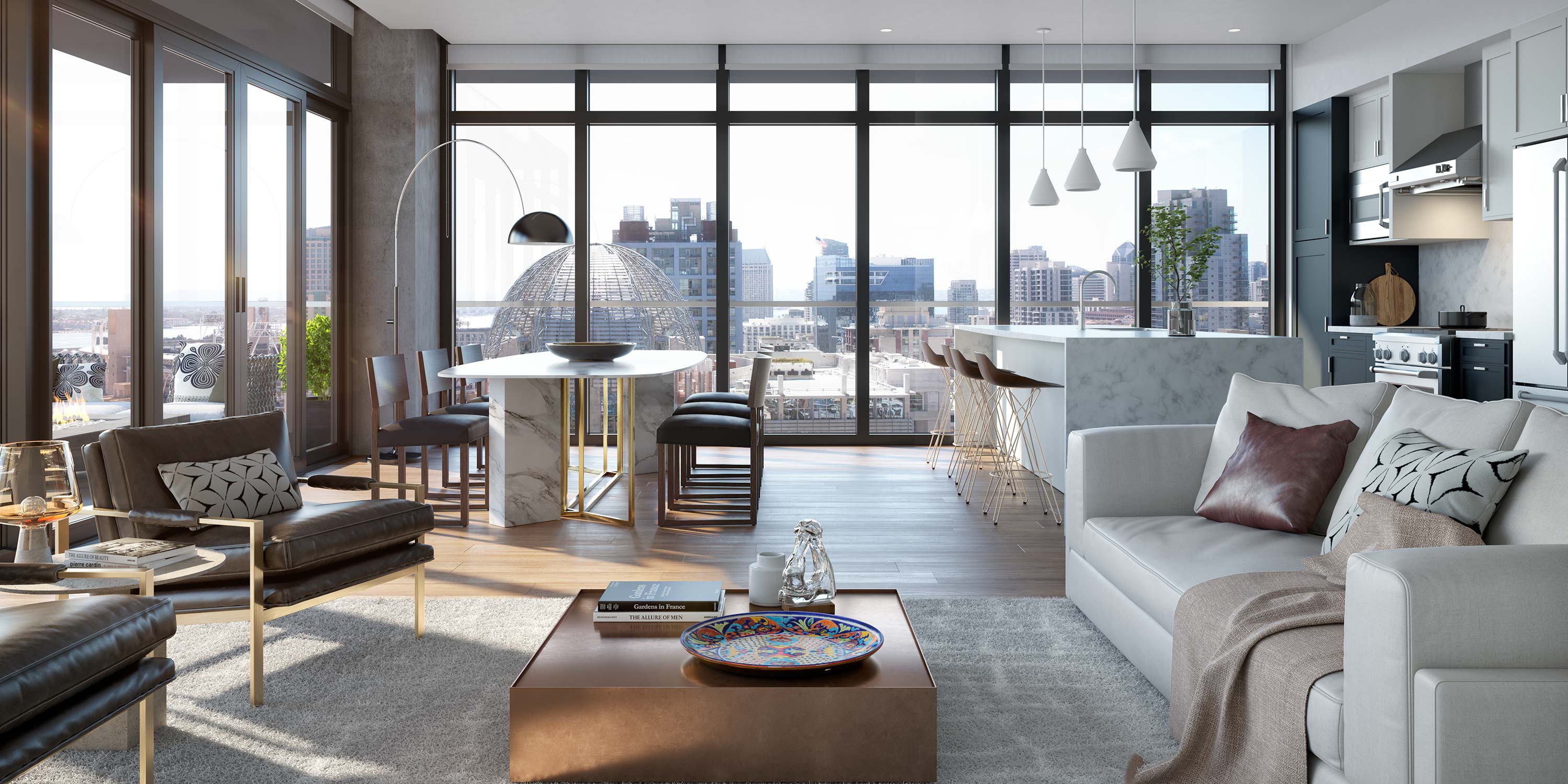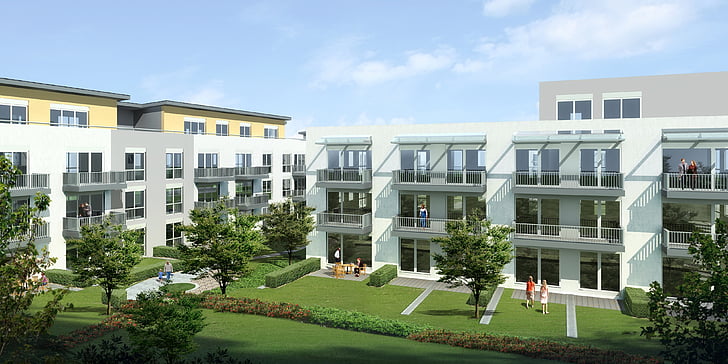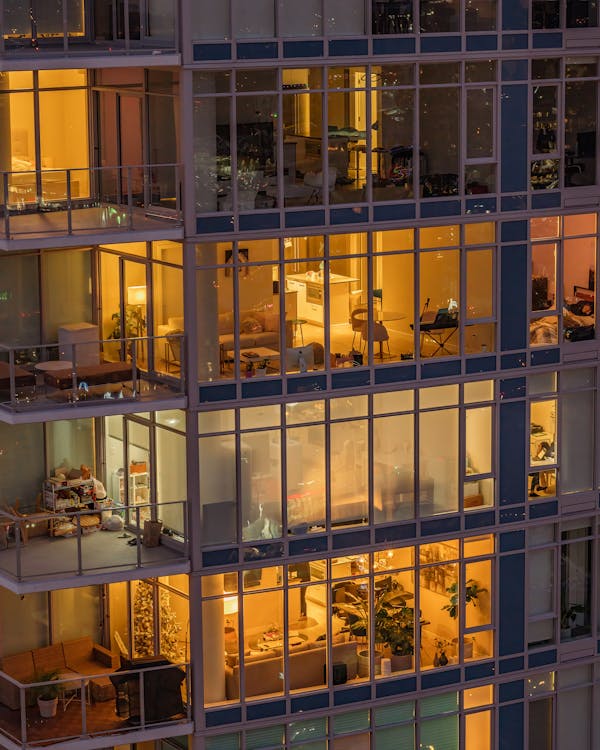Should You Buy a House or a Condo? What to Consider

By Stefani Forster for REALTOR.ca
The question of whether to buy a condo or a house may be obvious to some, but for others, it’s not so simple. Each comes with its own pros and cons as far as convenience, amenities, resale value and space is concerned.
It’s important to start by identifying your goals, lifestyle and budget. A REALTOR® can help you navigate the different options in your desired market, including the factors to consider when choosing between a condo or a house. Get started on REALTOR.ca by using the property type filter and compare all the options in your neighbourhood.
Condo types
There are two main types of condos on the market, freehold and leasehold. Freehold condos can be buildings divided into a number of units, row townhouses and even standalone townhouses or homes. Within freehold condos, there are standard condominiums, in which you buy your unit and have an interest in the property’s common elements but do not own the land. In common elements condominiums, there are no units but you own the property and the land on which it sits. The owners within the common elements condominiums community share ownership of common elements, jointly funding their maintenance and repair. There are also leasehold condominium corporations, in which the land is not owned by the condominium corporation, but where lease purchasers buy a leasehold interest in units and common elements.
Price

Buying a standard condominium is a bit different than buying a house, as you’re only purchasing a unit in a building, not a parcel of land. (This may not be the case for other kinds of condominiums). Generally speaking, a condo is more affordable than a house in the same area, however the gap is much wider in some markets than others, and may not be all that different if it’s a common elements condominium, for example. In cities like Vancouver and Toronto, your willingness to sacrifice a more central location for a lower price will play a big role in whether you opt for a house or condo.
Expenses

Condos come with monthly fees, which pay for services like security, maintenance and amenities. They’re typically determined by the size of your unit and how many units are in the building. Some condos offer luxurious amenities, like a 24-hour concierge, pool, gym, sauna, big-screen theatres and in some cases, even a bowling alley. It’s important to note, the more amenities offered, the higher your condo fees will likely be.

Condo fees also generally cover the costs if anything breaks within the building (not inside your unit). For homeowners, no such luck. A leaky roof or window upgrades are a few of the big-ticket items you’ll be responsible for yourself, especially in an older home.
Insurance is another expense that varies between a house and condo. Typically, insurance rates for a condo are much less than a house as the walls are insured by the building. Same goes for heating and electric bills, which are typically higher with houses.
Maintenance

If you hate mowing the lawn, shovelling snow or emptying out eavestroughs, a condo may be just the ticket. Houses require a lot more work and physical maintenance, which means more time on the homeowner’s part.
Location and lifestyle

Condos usually have central locations, giving owners easy commutes and accessibility to public transit, as well as proximity to shops and restaurants. For professionals, these urban conveniences may be more of a priority than an extra bedroom or backyard. And while houses outside of the downtown core are more affordable, you’ll sacrifice location and other conveniences associated with condo living. To help discover locations matching your lifestyle, get started with REALTOR.ca Local Insights.
If you have kids or plan on having them soon, you want to carefully consider things like space, noise and privacy. While two people might be content in a condo, if their family grows, a house may have a lot more appeal. Even a two-or-three-bedroom condo will generally have less room for a burgeoning brood than a house.
Freedom

Condo boards have rulesall owners or tenants are expected to follow. These can limit the number or size of pets allowed, prevent smoking in common areas or private balconies, restrict the use of visitors in common elements (such as a pool or gym), prohibit owners from renting out their units (like on Airbnb), prevent using personal BBQs on patios or dictate certain decorative elements, such as hanging Christmas lights or even the colour of your curtains.
Pros of a condo:

• You won’t be responsible for most repairs or maintenance outside of your unit.
• You could have access to amenities like a gym, pool or 24-hour concierge.
• They offer increased security.
• They’re often easier to rent in the short term.
• They’re more likely to be in a central or convenient location.
Cons of a condo:

• You generally have less privacy.
• There’s limited outdoor space.
• You will have to pay monthly maintenance fees (on top of mortgage payments and property tax).
• You might have to pay for amenities you don’t use.
• You’ll face possible restrictions on things like usage of common elements, parking, pets, renovations and decorations.
Pros of a house:

• You typically have total freedom over how you decorate and renovate.
• You have more control over your own space.
• You’ll likely have more outdoor space.
Cons of a house:

• You are responsible for all maintenance.
• You are responsible for all repairs.
• Utility bills and insurance is usually higher than in a condo.

The beauty of the GTA housing market is that there is plenty of supply of both houses and condo’s. If you would like to know which type of home is right for you and what is available in your desired area, please give me a call and someone from our team can meet with you in our office, at your home, virtually or by phone. Our number is 905-683-7800. If you’d rather text, you can reach me at 905-426-7484. My email is brian@briankondo.com.
Thanks for reading today’s BLOG!!!

Brian Kondo
Sales Representative / Team Leader
The Brian Kondo Real Estate Team
Re/Max Hallmark First Group Realty Ltd.
905-683-7800 office
905-426-7484 direct
brian@briankondo.com
www.BrianKondo.com
www.BrianKondoTeam.com
Stefani Forster's article was initially published on REALTOR.ca. You can find it by clicking here.
| REALTOR.ca is the most popular and most trusted real estate website in Canada. Owned and operated by the Canadian Real Estate Association (CREA), REALTOR.ca provides up-to-date and reliable information that makes finding your dream property easy and enjoyable. REALTOR.ca is popular with sellers, buyers, and renters and is accessible online and on mobile devices. |
|
|
About the Author Stefani is a multimedia content strategist and storyteller with experience at some of Canada's top agencies and publications. |
Homesellers - Find Out What Homes in Your Neighbourhood are Selling For! You can receive a FREE computerized printout of ALL recent Home Sales and Current Listings in your neighbourhood. Click here!
Best Buy Hotlist - You can receive a FREE list of the 10 Best Buys in your
specific price range sent to you at No COST or OBLIGATION.
Click here!
Your Home Sold Guaranteed or I'll Buy It!* No Gimmicks! For a Free Special Report that Details my Guaranteed Sale Program, visit: www.BriansGuaranteedSaleProgram.com.
Remember, your referrals change lives! We donate a portion of our income on every home sale to a great worthy cause like SickKids Hospital. To find out more visit: www.ReferForSickKids.com.
If you or anyone you know is considering making a move in the next little while, give me a call or pass on my number ... 905-683-7800 (Office) or 905-426-7484 (Direct).
#CondoOrHouse #BuyCondo

